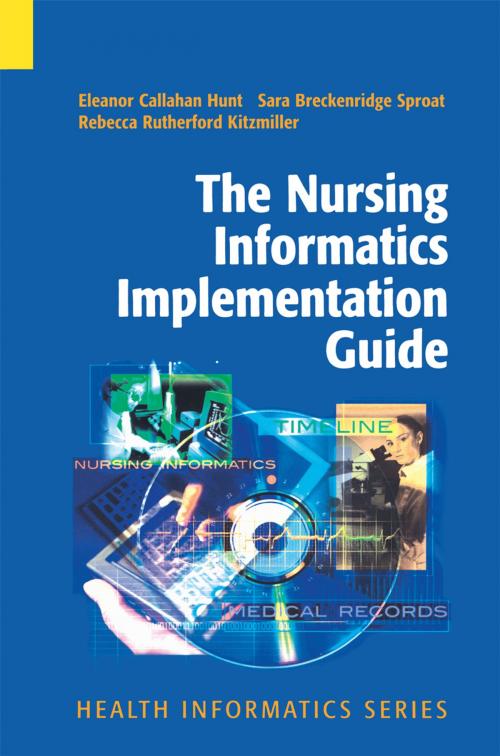The Nursing Informatics Implementation Guide
Nonfiction, Health & Well Being, Medical, Reference, Instruments & Supplies, Nursing| Author: | Eleanor Callahan Hunt, Sara Breckenridge Sproat, Rebecca Rutherford Kitzmiller | ISBN: | 9781475743432 |
| Publisher: | Springer New York | Publication: | March 9, 2013 |
| Imprint: | Springer | Language: | English |
| Author: | Eleanor Callahan Hunt, Sara Breckenridge Sproat, Rebecca Rutherford Kitzmiller |
| ISBN: | 9781475743432 |
| Publisher: | Springer New York |
| Publication: | March 9, 2013 |
| Imprint: | Springer |
| Language: | English |
Health institutions are investing in and fielding information technology solutions at an unprecedented pace. With the recommendations from the Institute of Medicine around information technology solutions for patient safety, mandates from industry groups such as Leapfrog about using infor mation systems to improve health care, and the move toward evidence based practice, health institutions cannot afford to retain manual practices. The installation of multi-million dollar computerized health systems repre sents the very life blood of contemporary clinical operations and a crucial link to the financial viability of institutions. Yet, the implementation of health information systems is exceptionally complex, expensive and often just plain messy. The need for improvement in the art and science of systems implemen tation is clear: up to 70-80% of information technology installations fail. The reasons are multi-faceted, ranging from the complexity of the diverse workflows being computerized, the intricate nature of health organizations, the knowledge and skills of users to other reasons such as strategies for obtaining key executive support, weaving through the politics peculiar to the institution, and technical facets including the usability of systems. Thus, the art and science of successfully implementing systems remains deeply layered in elusiveness. Still, given the pervasiveness of system implementa tions and the importance of the outcomes, this is a critical topic, especially for nurses and informatics nurse specialists.
Health institutions are investing in and fielding information technology solutions at an unprecedented pace. With the recommendations from the Institute of Medicine around information technology solutions for patient safety, mandates from industry groups such as Leapfrog about using infor mation systems to improve health care, and the move toward evidence based practice, health institutions cannot afford to retain manual practices. The installation of multi-million dollar computerized health systems repre sents the very life blood of contemporary clinical operations and a crucial link to the financial viability of institutions. Yet, the implementation of health information systems is exceptionally complex, expensive and often just plain messy. The need for improvement in the art and science of systems implemen tation is clear: up to 70-80% of information technology installations fail. The reasons are multi-faceted, ranging from the complexity of the diverse workflows being computerized, the intricate nature of health organizations, the knowledge and skills of users to other reasons such as strategies for obtaining key executive support, weaving through the politics peculiar to the institution, and technical facets including the usability of systems. Thus, the art and science of successfully implementing systems remains deeply layered in elusiveness. Still, given the pervasiveness of system implementa tions and the importance of the outcomes, this is a critical topic, especially for nurses and informatics nurse specialists.















